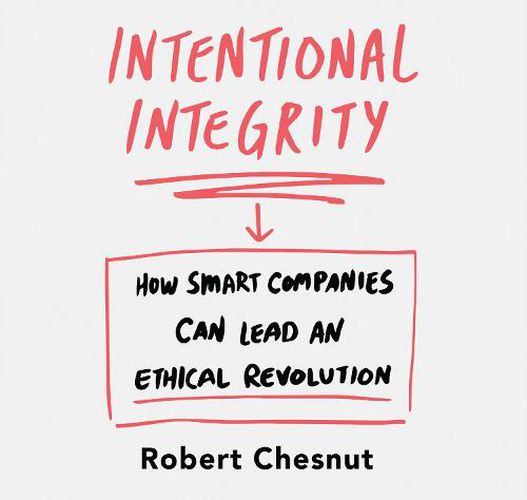Readings Newsletter
Become a Readings Member to make your shopping experience even easier.
Sign in or sign up for free!
You’re not far away from qualifying for FREE standard shipping within Australia
You’ve qualified for FREE standard shipping within Australia
The cart is loading…






Defining integrity is difficult. Once understood as ‘telling the truth and keeping your word,’ it was about following not just the letter but the spirit of the law. However, at a time when workplaces are becoming more diverse, global and connected, silence about integrity creates ambiguities about right and wrong that make everyone uncertain, opening the door for the minority of people to rationalise selfish behaviour. Meanwhile, trust in most traditional institutions is at an all-time low and there’s a dark cloud hovering over technology. And this is precisely where companies come in; as faith in establishments deteriorates, people are turning to their employer for stability.
In Intentional Integrity, Chesnut offers a six-step process for leaders to foster and manage a culture of integrity at work. He explains the rationale and legal context for the ethics and practices and presents scenarios to illuminate the nuances of thinking deeply and objectively about workplace culture.
We will always need governments to manage defence, infrastructure and basic societal functions. But, Chesnut argues, the private sector has the responsibility to use sensitivity and flexibility to make broader progress - if they act with integrity.
$9.00 standard shipping within Australia
FREE standard shipping within Australia for orders over $100.00
Express & International shipping calculated at checkout
Defining integrity is difficult. Once understood as ‘telling the truth and keeping your word,’ it was about following not just the letter but the spirit of the law. However, at a time when workplaces are becoming more diverse, global and connected, silence about integrity creates ambiguities about right and wrong that make everyone uncertain, opening the door for the minority of people to rationalise selfish behaviour. Meanwhile, trust in most traditional institutions is at an all-time low and there’s a dark cloud hovering over technology. And this is precisely where companies come in; as faith in establishments deteriorates, people are turning to their employer for stability.
In Intentional Integrity, Chesnut offers a six-step process for leaders to foster and manage a culture of integrity at work. He explains the rationale and legal context for the ethics and practices and presents scenarios to illuminate the nuances of thinking deeply and objectively about workplace culture.
We will always need governments to manage defence, infrastructure and basic societal functions. But, Chesnut argues, the private sector has the responsibility to use sensitivity and flexibility to make broader progress - if they act with integrity.